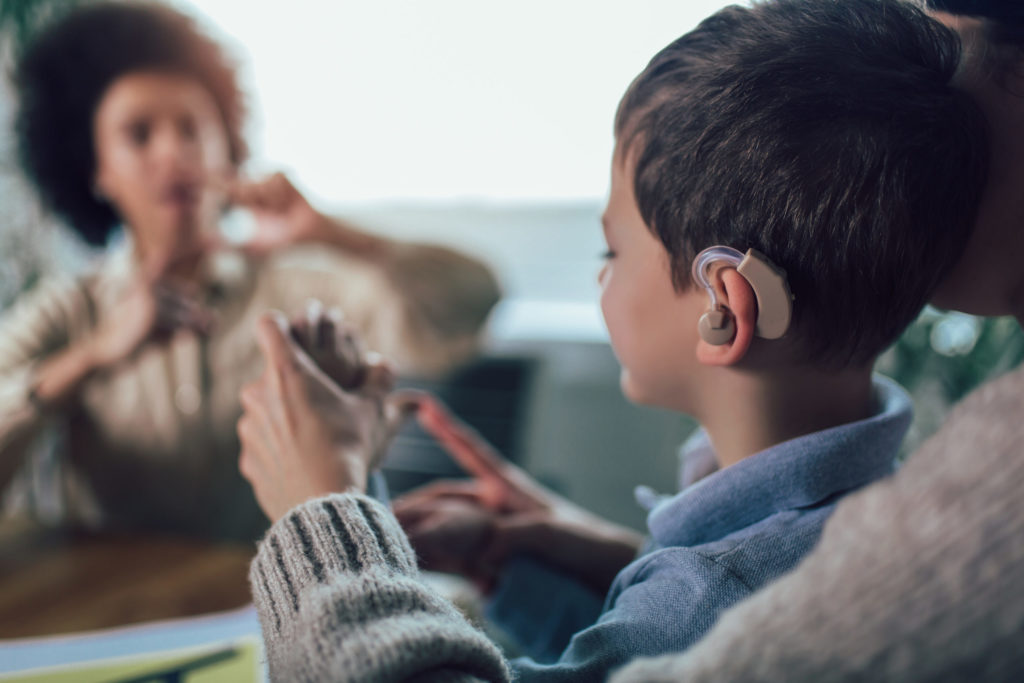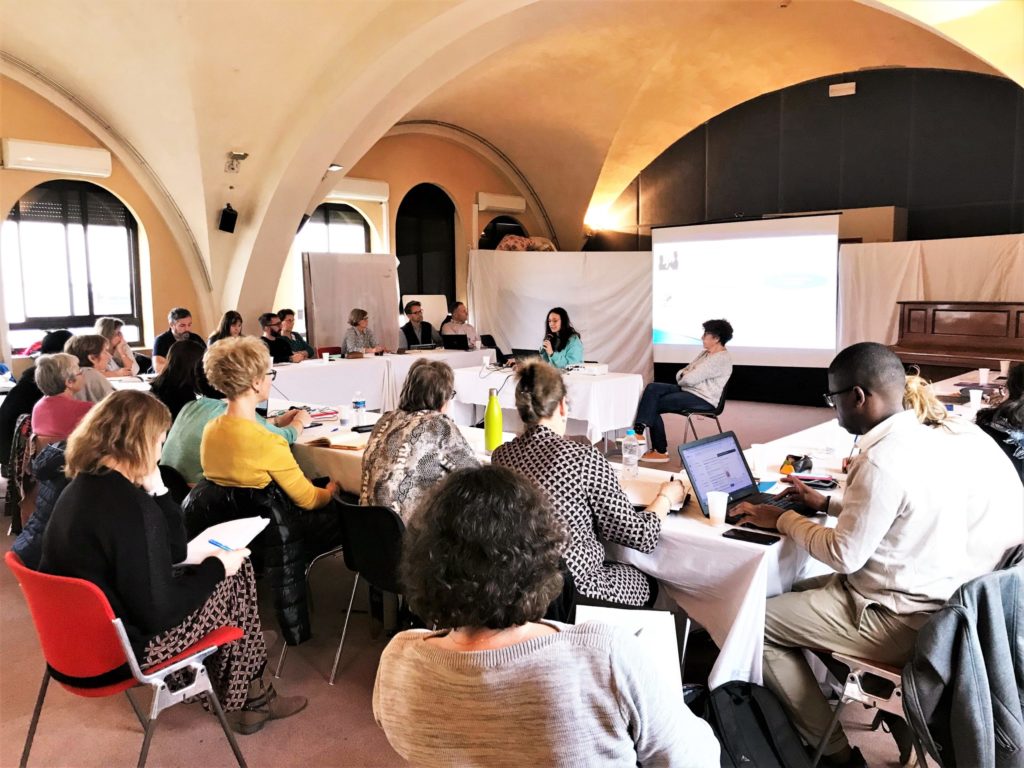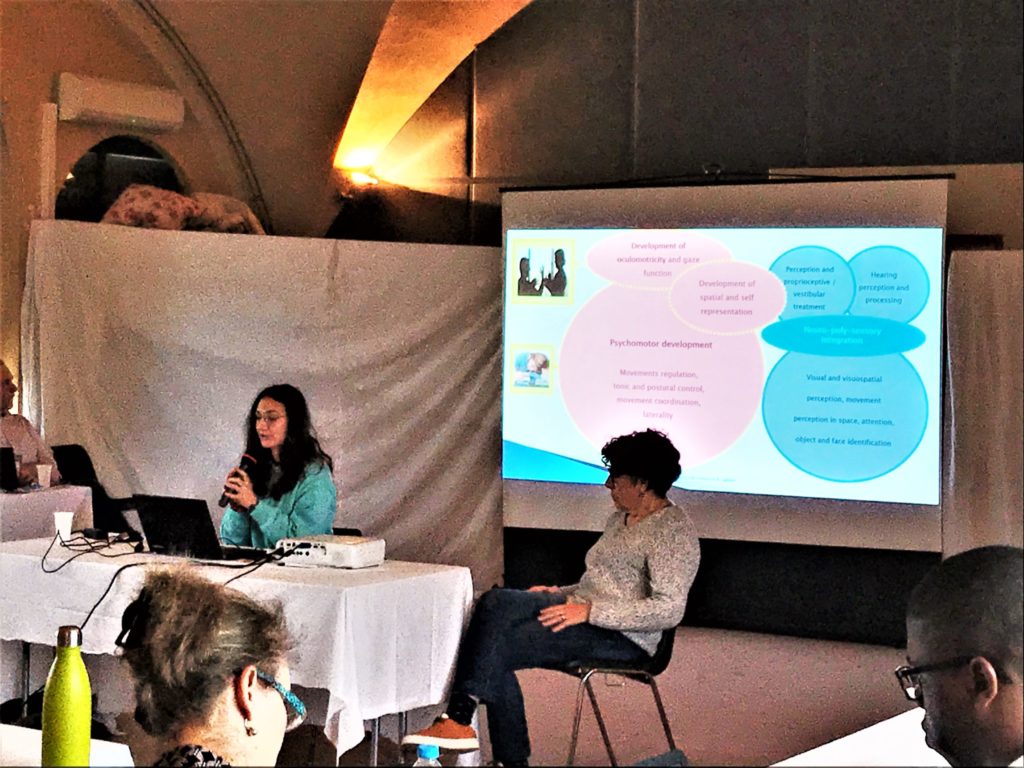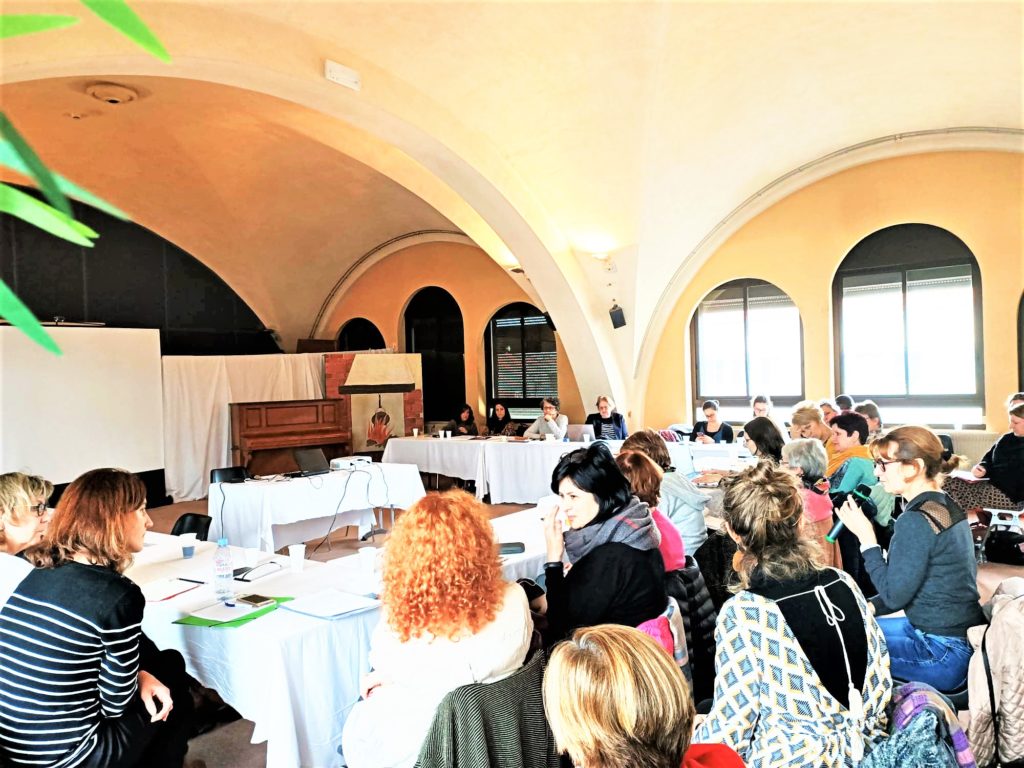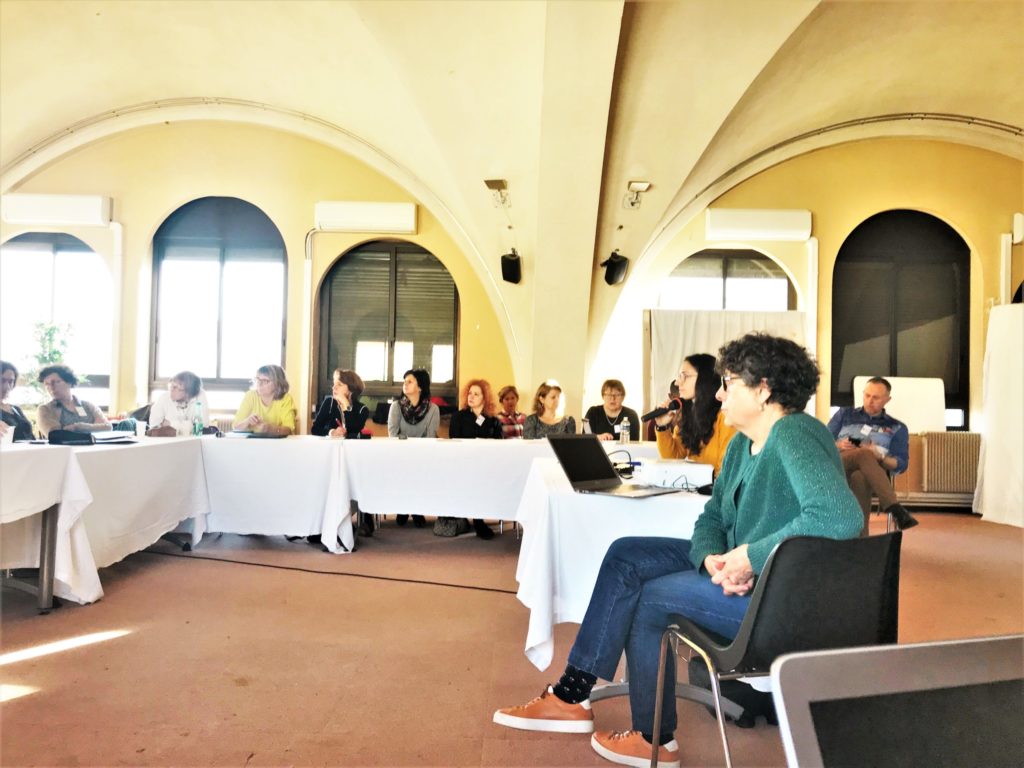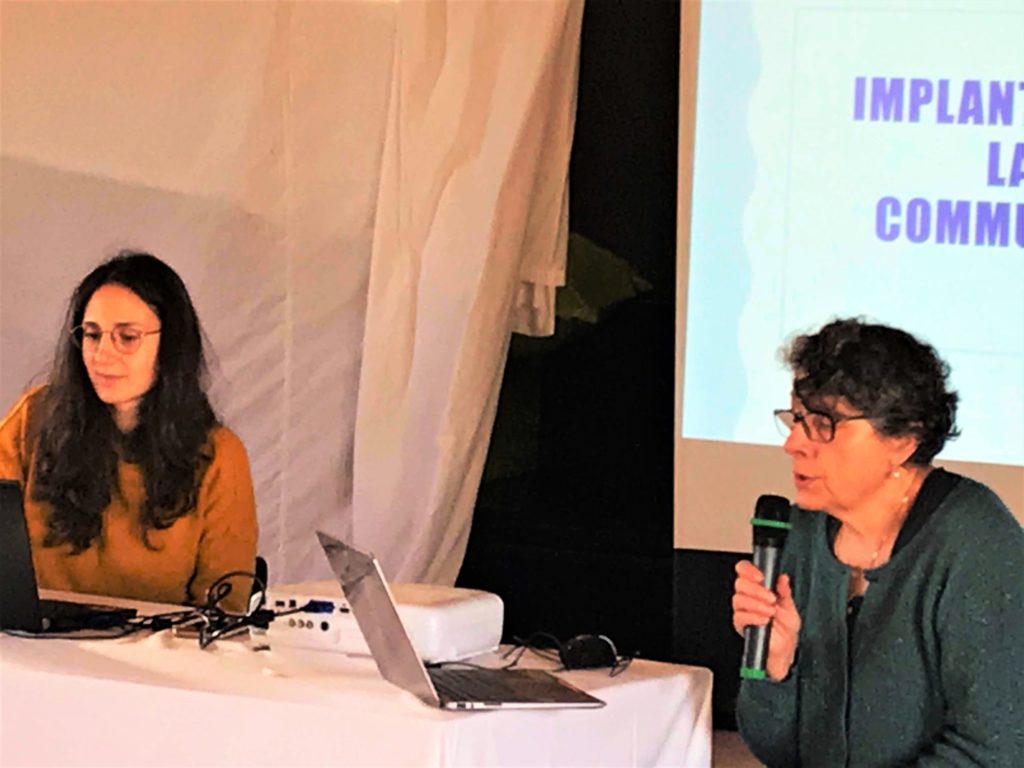The erasmus project : CHI
In our society, deaf children are confronted with problems of communication with their entourage; however, the development of cochlear implants over the last two decades has radically changed the care and support of severely and profoundly deaf children. In cases of profound congenital hearing impairment without the presence of associated impairments , cochlear implants have generally enabled a proper rehabilitation of auditory faculties (requiring long-term supervision); however, its development has played a major role in uncovering other disorders associated with the deafness. Indeed, some children, despite receiving treatment at an early age, still present a problematic linguistic development. In general, the following effects are observed: a failure of rehabilitation initiatives, learning difficulties, and behavioral difficulties. Difficulties accessing oral language are especially those which highlight these children’s atypical development.
Associated impairments, of various natures and origins, are sometimes particularly disabling, and may be manifested in a number of ways. These impairments, whose repercussions on access to language have long been underestimated, considerably complicate and obstruct the child’s daily life. In order to counterbalance their difficulties, deaf children put certain strategies in place. They are thus led to developing other lines of communication, particularly visual ones. Their linguistic mechanisms are then organised and woven around these substitute systems. Nonetheless, any possible alteration to one of these systems, whether direct or indirect, will bring with it a number of complex linguistic difficulties.
The oral language development difficulties of children with cochlear implants are complex, and their causes sometimes inapparent (putting pressure on the substitute systems put in place). It is very difficult to assess and quantify a number of these disorders. The work of specialists requires significant multidisciplinary cooperation and regular observation of the child.
Objectives
The CHI (Central Hearing Impairment) project will allow this collaborative work to offer an improved understanding of the practices, examination methods, and equipment, used in the provision of care and support to these children, at the European level. Even if the objective is to produce an assessment and rehabilitations protocol for multidisciplinary teams, to improve the provision of care and support to these children, this exploratory stage is extremely important in obtaining an appreciation of the Europe-wide situation.
Two main participant training sessions will be elaborated. One of these will include all partners and will raise the question of what language disorders are, in order to come to agreement on how to define them. The second session will be centred on clinical case studies to a greater extent, which will provide a thorough understanding of the state of play. This will allow the practices and examination methods obtaining the best results in oral language development to be presented at the EU level with the presence of one Canadian partner.
Partners
Thus, nine specialist establishments, with the representation of all groups of professionals forming their multidisciplinary child support teams (ENT specialists, neuropsychologists, psychologists, social workers, speech therapists, special education teachers, etc.), will attend each CHI project training event. These are:
- Association de patronage de l’institut régional des jeunes sourds et des jeunes aveugles de Marseille (Association for the support of the Regional institute of deaf or blind young people in Marseille, IRSAM) – Marseille, France
- Institut Public la Persagotière (La Persagotière public institute, IPP)
- Centre national de ressources handicap rare Robert Laplane – Paris, France
- Liceul Tehnologic Special pentru Deficienți de Auz Cluj-Napoca – Cluj-Napoca, Romania
- IRSA Bruxelles – Brussels, Belgium
- Federación Andaluza de Familias de Personas Sordas (FAPAS) – Seville, Spain
- Insituto dei sordi di Torino – Turin, Italy
- Lietuvos kurciuju ir neprigirdinciuju ugdymo centras – Vilnius, Lithuania
- Institut Raymond Dewar – Montreal, Canada
The first project meet
The first meeting of project partners took place in Marseille from the 11th to the 13th of February 2020. Over these few captivating days, a number of accounts and exchanges of practice allowed us to identify the target demographic and make progress on the issue at hand. The target demographic concerns deaf children who have had cochlear implants for at least two years and who have not developed oral language as expected. Elisabeth Lasserre (neuropsychologist) and Lotus Emam (knowledge broker) spoke on understanding and spotting disorders associated with deafness within children with cochlear implants.
The next project meet will take place in Cluj-Napoca, where we will use case studies as the basis for investigating the subject to a greater extent.
